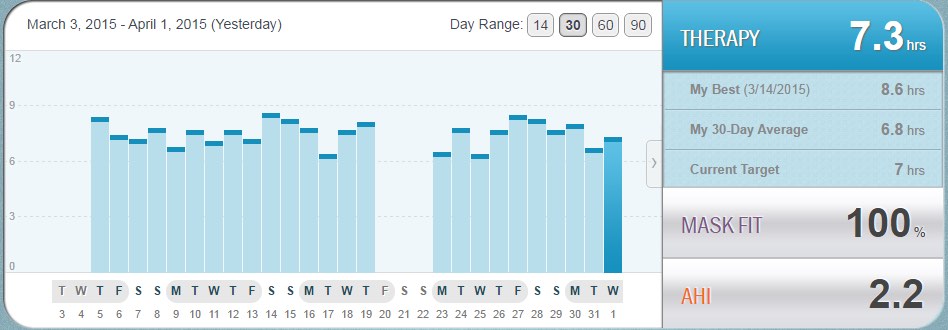I've read a whole lot about autism and Aspergers Syndrome over the years. However, I think I've finally found an article that explains the condition to people who don't have it and, more importantly, provides some keen insights about autism's more socially unacceptable symptoms and how they might be reduced or eliminated1.
IMAGINE BEING BORN into a world of bewildering, inescapable sensory overload, like a visitor from a much darker, calmer, quieter planet. Your mother’s eyes: a strobe light. Your father’s voice: a growling jackhammer. That cute little onesie everyone thinks is so soft? Sandpaper with diamond grit. And what about all that cooing and affection? A barrage of chaotic, indecipherable input, a cacophony of raw, unfilterable data.
Realize that not everyone that has autism or Aspergers reacts the same way to the same stimuli. Even the same person can react differently to the same set of stimuli at different times, depending on a wide range of things. At least this is my own personal experience, which is certainly different from everyone else's.
I can tell you that when external stimuli begins to impact me, whatever it is, whenever it is, I am overwhelmed to the point where rational thought becomes very difficult, as this article describes:
The behavior that results [from autism] is not due to cognitive deficits—the prevailing view in autism research circles today—but the opposite, they say. Rather than being oblivious, autistic people take in too much and learn too fast. While they may appear bereft of emotion, [Henry and Kamila Markram] insist they are actually overwhelmed not only by their own emotions, but by the emotions of others.
A lot of what people on the autism spectrum do in order to cope is to attempt to eliminate or even slow down the constant flow of stimulus from the world. In social situations, this can sometimes seem like uncaring or antisocial behavior, when in fact, the behavior is rooted in being overwhelmed or avoidance.
Indeed, research on typical children and adults finds that too much distress can dampen ordinary empathy as well. When someone else’s pain becomes too unbearable to witness, even typical people withdraw and try to soothe themselves first rather than helping—exactly like autistic people. It’s just that autistic people become distressed more easily, and so their reactions appear atypical.
[…] “The overwhelmingness of understanding how people feel can lead to either what is perceived as inappropriate emotional response, or to what is perceived as shutting down, which people see as lack of empathy,” says Emily Willingham. Willingham is a biologist and the mother of an autistic child; she also suspects that she herself has Asperger syndrome. But rather than being unemotional, she says, autistic people are “taking it all in like a tsunami of emotion that they feel on behalf of others. Going internal is protective.”
The funny thing is I regularly find myself reacting badly to television shows. I can see what the character is going through on the program or predict what's going to happen next, and it can be painful to watch. Same with movies. Perhaps this is why I find little joy in television and movies on the whole2.
So now we've established the problem, the question is: why? The Markrams did some research on rats they they were able to make appear autistic by exposing them to valproic acid (VPA) prenatally and look at their brains, with the help of a graduate student. It took a couple of years of research before they saw something that could explain things:
“There was a difference in the excitability of the whole network,” [graduate student Tania Rinaldi Barkat] says, reliving her enthusiasm. The networked VPA cells responded nearly twice as strongly as normal—and they were hyper-connected. If a normal cell had connections to ten other cells, a VPA cell connected with twenty. Nor were they under-responsive. Instead, they were hyperactive, which isn’t necessarily a defect: A more responsive, better-connected network learns faster.
Learning fast is not a bad thing. It's certainly something I've used to my advantage over the years. However, clearly with negative behaviors, it can be a bad thing. In fact, the Markrams observed that the VPA-exposed rats were quicker to get frightened, and faster at learning what to fear, but slower to discover that a once-threatening situation was now safe.
While ordinary rats get scared of an electrified grid where they are shocked when a particular tone sounds, VPA rats come to fear not just that tone, but the whole grid and everything connected with it—like colors, smells, and other clearly distinguishable beeps.
“The fear conditioning was really hugely amplified,” Markram says.
And therein lies the issue for many people that are on the autism spectrum, myself included. Once something is learned to be feared, which happens quickly thanks to the extra neural pathways, unlearning that takes a lot of work. This has caused me a fair bit of challenge in my personal relationships over the years.
Meanwhile, there's hope for those born today. If autism is detected early enough, which it can be, "Early intervention to reduce or moderate the intensity of an autistic child’s environment might allow their talents to be protected while their autism-related disabilities are mitigated or, possibly, avoided."
It sounds really promising.



